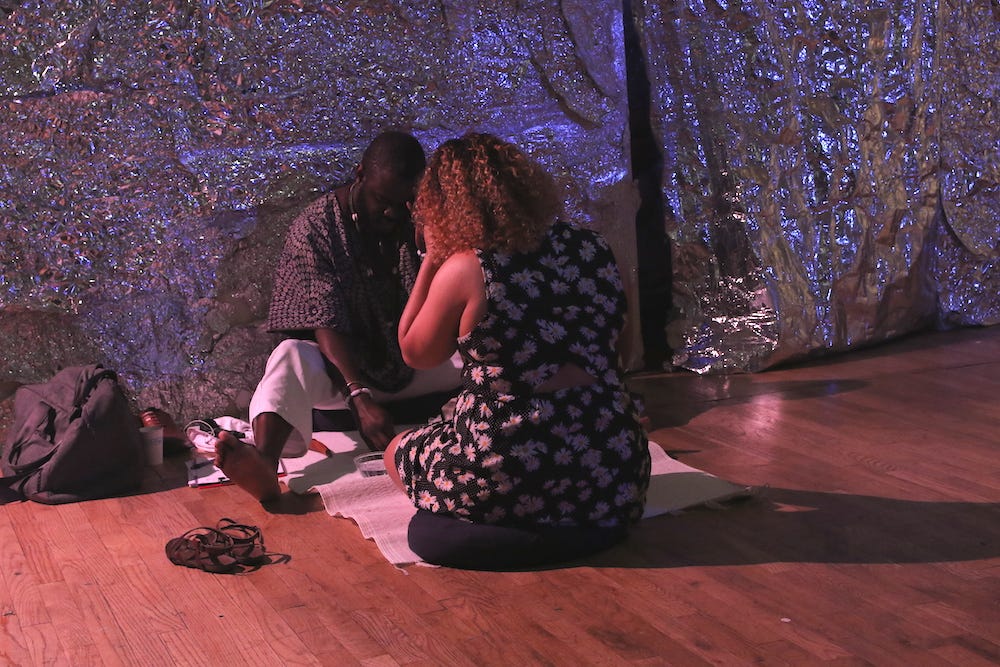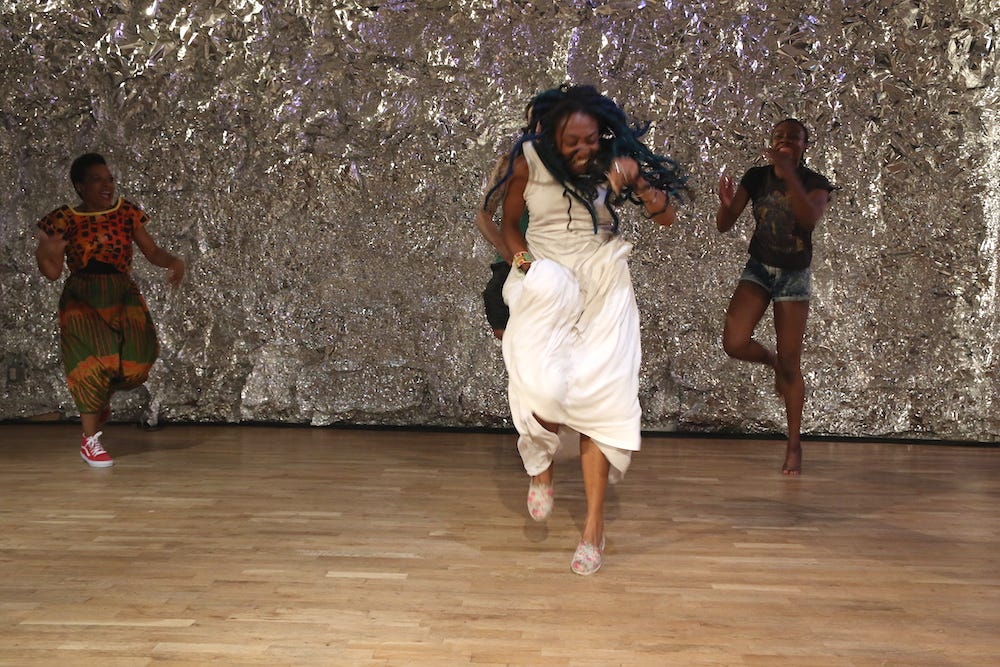A restorative healing event catered to people of color was recently held at JACK, a social justice-based performance space in Brooklyn.
From Memory to Movement was part of Reparations365, an initiative that was launched in February of 2017 to discuss historical and current injustices against Black and Brown communities through collaborative performances and gatherings.
The first portion of From Memory to Movement started out slowly with private readings, a corner for acupuncture, and a small group workshop that discussed memory. There was low lighting, gentle incense throughout the room, and low instrumental music in the background as visitors had their tarot read.

Aki Hirata Baker, the co-founder of MINKA, an alternative holistic healing center in Brooklyn, said that she makes sure to give opportunities to healers of color so that all kinds of people can have access to things like acupuncture and reiki energy healing.
“There are places like MINKA, but it’s extremely Eurocentric, and people need to feel comfortable to heal,” she said. “If we don’t feel comfortable how do we ever heal?”
Both JACK and MINKA events are not exclusive to people of color, but organizers like Hirata Baker want attendees to know that they aim for everyone to feel welcome in a cultural and political climate that still sometimes makes minorities feel uncomfortable in their own country.
Organizers also made a point of providing snacks, food, cheaply priced drinks, and a setting a low suggested donation so that everyone would feel like the event was accessible.
Attendees were able to participate in energy and tarot readings, and were also guided through how to approach different hardships. A small group was asked to meditate on their memories, to look into their past and see what stood out to them and draw things out. During some of the readings, practitioners called for individuals’ ancestors and spirit guides to help guide the person through the meditation.
“It’s about honoring your lineage, your history,” said partitioner Sunder Ashni. “This works at where the soul is seeking to grow, it doesn’t look into future, it looks into present and energies that are there in mind and body.”
Rakia Seaborn, a dancer, performed Not It! which is part of a longer dance piece on reparations called myeyesdontcrynomore. Seaborn, alongside Pia Murray and Kendra Ross, emoted joy and pain, playing childhood hand games and reciting playground chants like “ring around the rosie.”
She and the dancers that accompanied her had the crowd dance the Detroit Hustle, a funkified version of the Electric Slide that originated in her hometown. And everyone even joined her in running around and screaming, like children often do on playgrounds just because they can.
“I wanted to use movement to take everyone back to that time before we start to be treated like criminals,” Seaborn said. “That place of innocence and giving a childhood to brown girls.”

Marguerite Hemmings also used collaborative dance, performing with several other dancers and the audience. Everyone participating was given the opportunity to lead the group. There was popping and locking, winning, kicking and swaying across the room under mood lighting.
Sometimes everyone moved together, and sometimes they moved in groups. After a while, dancers and attendees made two circles and took turns dancing to represent memories and the elements like water, fire, and earth. They made flowing gestures with their arms and legs, and told each other about what home meant to them and why.
“We’re letting people take space when they dance,” said Hemmings. “It’s about opening back up to be able to go from a shrinking place to your most expanded place.”
Jennifer Zahid Chowdhury, a writer and life-long Brooklyn resident, participated in the event. She’d gone to MINKA for different services and saw a Facebook post announcing the event at JACK.
“I love the idea of these services being offered to a community that can’t normally afford $200 treatments and so I wanted to come in and holds space for everyone and get my astrology and tarot cards read,” she said.
Chowdhury participated in several group dances. She learned line dances and used her body to represent the different elements. “We can’t be effective healers and activists without our own modalities to heal ourselves,” she said.
Organizers say they want to keep thinking about how to combine emotional wellness and social justice. Several of them including JACK Co-Director DeeArah Wright mentioned how collective trauma can determine long term physical and mental health problems. They want future events to keep challenging the fact that people of color should prioritize self care, even if they haven’t been able to do so historically.
“This is the reset to our Reparations365, it’s part of a continuation of more events to come,” said Wright. “We’re figuring out how to make a tangible first step toward reparations.”
Overall, the event brought people together through memory and movement. Several people said that it was worth spending most of their Sunday at JACK.
“This brought me back to things I hadn’t felt since I was young,” said a woman attending as she smiled at others in the final circle after dancing. “This was so much fun.”
Stay tuned for more event info and recaps from Nooklyn Stories! Tweet us @nooklyn, reach out on Facebook, or find us on Instagram @nooklyn.stories!
All photos by Angely Mercado